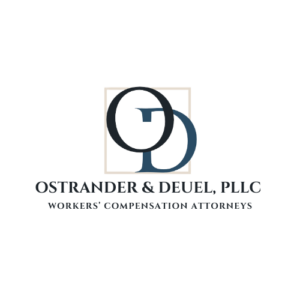The Senate Bill 5115 (SB 5115) establishes health emergency labor standards. Specifically, it will affect Workers’ Compensation in Washington State by creating an occupational disease presumption for frontline employees and the contraction of COVID-19. The bill contains an emergency clause that states the bill will take effect immediately once signed. SB 5115 passed the state Senate 48-1 on February 23, 2021 and the state House 68-30 on April 5th, 2021. The bill was amended in the House, so it returned to the Senate for concurrence. On April 14, the Senate concurred on the House amendments 32-16. Now it is headed to the Governor’s desk to be signed.
So, what does this new law mean for frontline workers in Washington State? Well, it means right now, if you are a frontline worker who has contracted COVID-19 the there is a presumption it is an occupational disease for the purposes of workers’ compensation. You are only required to provide verification that you contracted it through a test or doctors note.
The Department of Labor and Industries or your employer can try and rebut this presumption, but they must show a preponderance of evidence that you contracted the disease from other employment or activities, or that you were working from home or on leave at the time you contracted the disease.
This bill also creates a standard for employers to keep their employees safe! It states that an employer with more than 50 employees at a workplace, within 24 hours of confirming that 10 or more of their employees have tested positive, then they must report it to the Department of Labor and Industries. It also requires that the employer must provide written notice of potential exposure to employees if they become aware of an employee testing positive.
Finally, it protects high risk employees by not allowing an employer to discharge, permanently replace, or discriminate against an employee who is high risk as a result of the employee seeking accommodation that protects them from exposure to COVID or using their leave if no accommodation is available. This bill is still not enacted into law just yet, but it is on its way there and is expected to be signed by Governor Jay Inslee soon. This adds additional protections to frontline workers in receiving their workers’ compensation benefits from the Department of Labor and Industries while also creating a safer workplace for all employees during this COVID-19 pandemic.
**Frontline workers are the following employees as indicated by this bill:
- first responders, including law enforcement officers, firefighters, emergency medical service providers, paramedics, and ambulance drivers;
- employees performing food processing, food manufacturing, food distribution, farm, and meat packing work;
- maintenance, janitorial, and food service workers at any facility treating patients diagnosed with the infectious or contagious disease that is the subject of the public health emergency;
- drivers and operators employed by a transit agency or any other public entity providing mass transportation services;
- employees working at a licensed child care facility that interact in person with children or other members of the general public;
- retail employees at stores that remain open to the general public during the public health emergency if the employee has in-person interaction with the general public or other employees; employees of a hotel, motel, or other transient accommodation that remains open to the general public during the public health emergency, if the employee has in-person interaction with the general public or other employees;
- restaurant employees, if the employee has in-person interaction with the general public or other employees;
- home care aides and home health aides that primarily work in the home of the individual receiving care;
- corrections officers and correctional support employees; educational employees, including teachers, paraeducators, principals, librarians, school bus drivers, and other educational support staff and contractors that are required to be physically present at a school, or on the grounds of a school, where classes are being taught in person, in a school transportation vehicle, or in the home of a student as part of their job duties, if the employee has in-person interaction with students, a student’s family members, or other employees;
- employees at higher education institutions that are required to be physically present on campus where classes are being taught in person, if the employee has in-person interaction with students or other employees; and
- employees employed by a public library that remains open, if the employee has in-person interaction with the general public or other employees.
